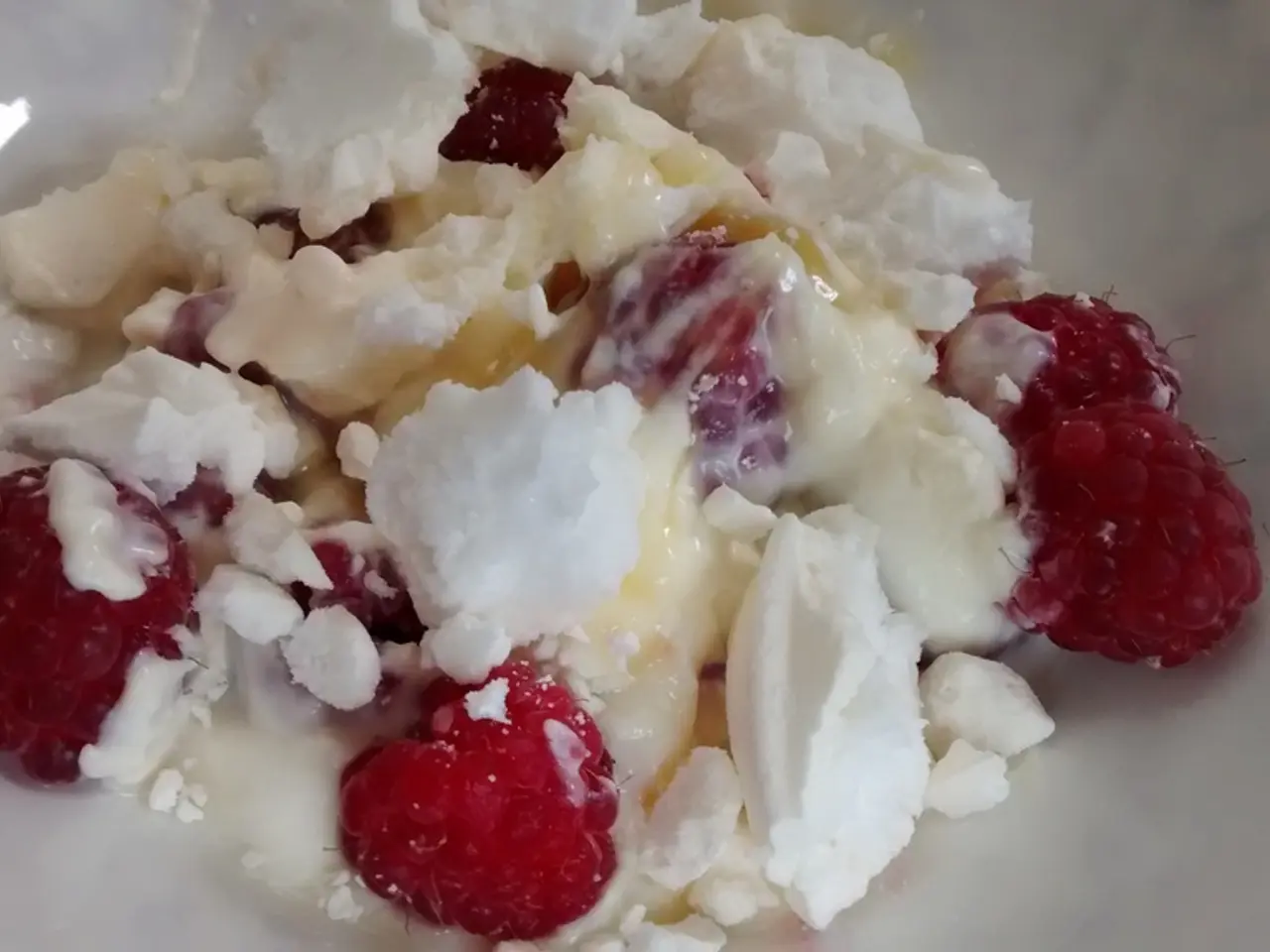Top Choices (and Regrettable Options) for Managing Discomfort in Pancreatitis
Staying hydrated and adopting a pancreas-friendly diet are crucial in the recovery process from acute pancreatitis. This diet emphasizes low-fat, easy-to-digest foods rich in lean proteins, complex carbohydrates, and nutrients that support healing.
Best Foods for Pancreatitis and Why They Help
Lean Proteins
Foods such as skinless poultry, fish, beans, lentils, and low-fat dairy provide essential nutrients without burdening the pancreas, which must produce enzymes to digest fats.
Low-Fat Foods
Limiting fat intake (around 30 to 50 grams/day) reduces the pancreas's enzyme production burden, helping to prevent flare-ups.
Fruits and Vegetables
These provide vitamins, minerals, antioxidants, and fiber for digestive health and immune support. During the acute phase, it's advisable to opt for low-fiber options, and gradually increase fiber intake as symptoms improve.
Whole Grains
Whole grains like brown rice, oats, and quinoa offer fiber and sustained energy with gentle digestion.
Small, Frequent Meals
Eating small, frequent meals helps maintain steady digestion and reduces pancreatic stress compared to large meals.
Healthy Fats
Healthy fats, like those from olive oil, avocado, and fatty fish (salmon), may aid healing when tolerated and can provide necessary calories without excessive pancreatic strain.
Worst Foods for Pancreatitis and Why They Harm
High-Fat Foods
High-fat foods, including fatty meats, fried foods, processed items, and full-fat dairy, require high enzyme amounts for digestion, causing extra pancreatic stress and increased inflammation risk.
Sugary Drinks and Refined Sugars
These can exacerbate inflammation and contribute to poor overall nutrition.
Alcohol
A well-known trigger of pancreatitis flare-ups, alcohol worsens pancreatic damage and inflammation.
Heavy, Large Meals
These increase pancreatic workload and can induce pain or exacerbate symptoms.
Summary Table
| Food Type | Recommended / Avoided | Reason | |-------------------------------|----------------------|--------------------------------------------------------------------| | Lean proteins (chicken, fish) | Recommended | Nutrient-rich, low-fat, easy to digest | | Low-fat dairy | Recommended | Supports nutrition without high fat load on pancreas | | Fruits & vegetables | Recommended | Vitamins, antioxidants, fiber, immune support | | Whole grains (brown rice, quinoa) | Recommended | Fiber, gentle digestion, energy source | | Healthy fats (olive oil, avocado) | Recommended cautiously | Provide calories, easier digestion in moderation | | High-fat foods (fried, fatty meats) | Avoided | Cause high pancreatic enzyme demand, worsen inflammation | | Alcohol | Avoided | Directly triggers pancreatitis and inflammation | | Sugary drinks/refined sugar | Avoided | Increase inflammation and worsen symptoms | | Large heavy meals | Avoided | Stress pancreas; small, frequent meals preferred |
In conclusion, sticking to a low-fat, nutrient-dense diet with small, frequent meals centered on lean proteins, whole grains, fruits, and vegetables supports recovery from pancreatitis by easing the pancreas's workload and providing necessary nutrients for tissue repair and immune function. Avoiding fatty, fried, processed foods and alcohol is crucial as these exacerbate pancreatic inflammation and delay healing.
- Maintaining a pancreas-friendly diet that focuses on lean proteins, low-fat foods, and nutrient-dense fruits and vegetables can aid in the recovery process from acute pancreatitis.
- Whole grains like brown rice, oats, and quinoa are recommended due to their fiber content, gentle digestion, and sustained energy.
- Healthy fats, such as those from olive oil, avocado, and fatty fish (salmon), can aid healing but should be consumed cautiously and in moderation.
- On the contrary, high-fat foods, sugary drinks, refined sugars, alcohol, heavy, large meals, and processed items should be avoided as these exacerbate pancreatic inflammation and delay healing.




